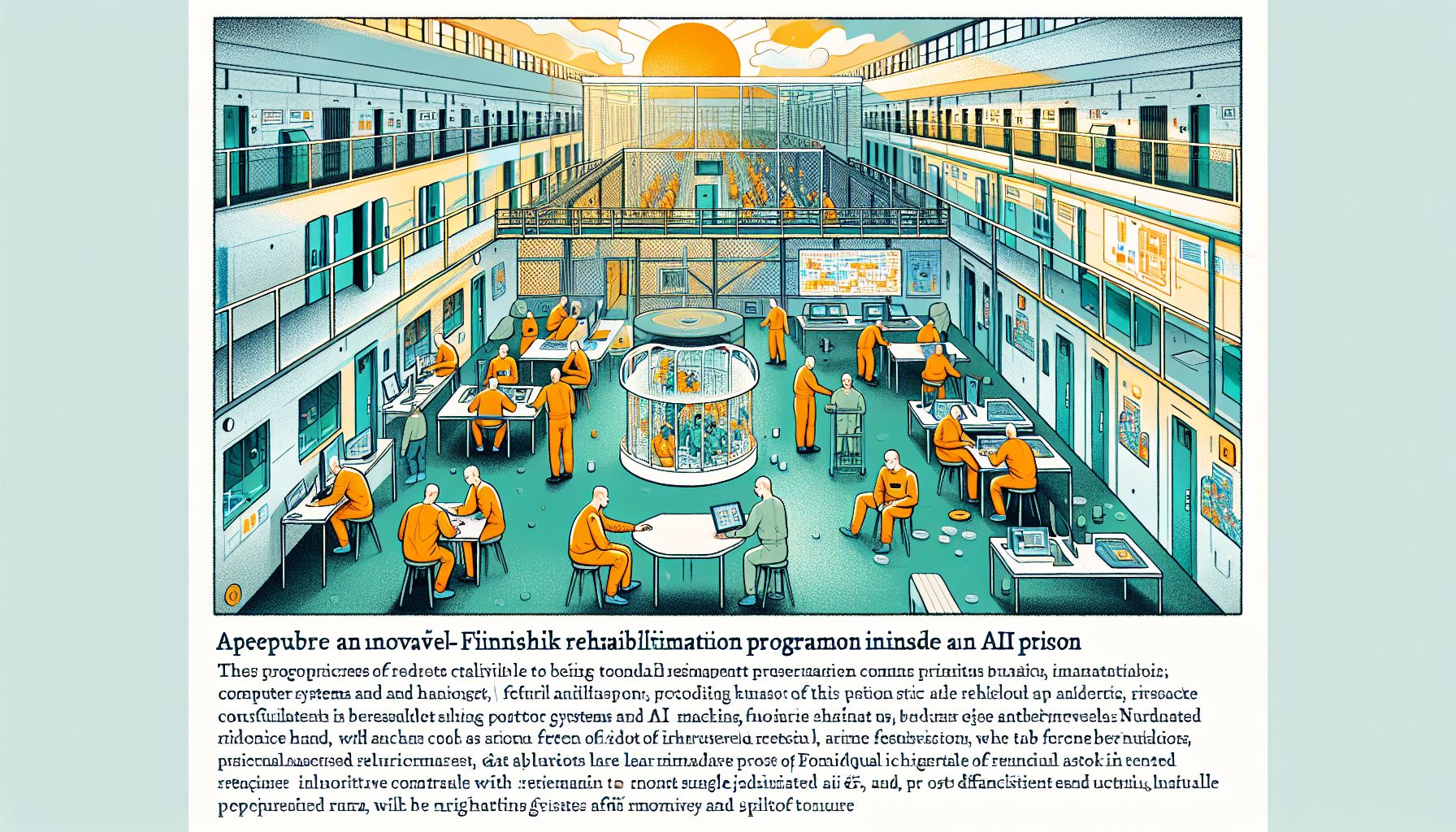Finnish Prisons Embrace AI: Inmates Enhance Digital Skills Through Data Labeling

Helsinki, Monday, 23 September 2024.
Finland’s innovative rehabilitation program employs prisoners in AI data annotation, aiming to reduce recidivism by equipping inmates with digital literacy skills. This initiative, part of the ‘Smart Prison’ project, not only aids in AI development but also prepares prisoners for a tech-driven future, while maintaining Nordic principles of humane incarceration.
Collaboration Between Metroc and Finnish Prison Services
The initiative, a collaboration between Metroc, a Finnish market data company, and the Finnish Prison and Probation Service, has been operational for the past two years. Metroc, founded by Jussi Virnala, is dedicated to improving AI accuracy by utilizing human input to train language models in the Finnish language. This partnership aims to tackle the unique challenges posed by the Finnish language, which is spoken by a relatively small population. The program is part of a broader ‘Smart Prison’ project initiated in 2018, emphasizing the principle of normality in Nordic prison systems.
How the Program Works
Inmates participating in the program are provided with laptops and training materials, which include courses on construction history, terminology, and basic AI concepts. Their tasks involve labeling and classifying data, which helps train AI models to better understand and interpret Finnish text materials. This work is crucial for software that needs to interpret details about construction products, planning permissions, and other specific contexts. The program is designed to be engaging and meaningful, offering a new area of interest for inmates while compensating them for their work at a rate of €3 per day, later increased to €4.62 per day.
Benefits and Ethical Considerations
The primary benefit of this program is the enhancement of digital literacy among inmates, which is expected to reduce recidivism rates by equipping them with valuable skills for a tech-driven job market. According to Pia Puolakka, the project manager of ‘Smart Prison,’ the initiative aims to keep prison conditions as normal as possible to prepare inmates for reintegration into society. However, ethical concerns have been raised regarding the nature of AI annotation work, which can be repetitive and low-paid. Dr. Oğuz Alyanak from the Oxford Internet Institute emphasizes the need to critically examine the AI supply chain and ensure fair treatment of all workers involved.
Future Prospects and Broader Impact
The success of Finland’s AI annotation program has garnered interest from other Nordic and European countries, which are considering similar integrations of technology into their correctional facilities. While Metroc acknowledges that it cannot solely rely on prison labor for AI annotation tasks, the program serves as a valuable supplement to its efforts. According to Tuukka Lehtiniemi, a researcher at the University of Helsinki, this future-oriented work not only benefits inmates but also paves the way for more inclusive and humane rehabilitation practices. The ultimate goal remains rehabilitation, not the creation of a data workforce, highlighting the program’s focus on preparing inmates for a successful reintegration into society.

